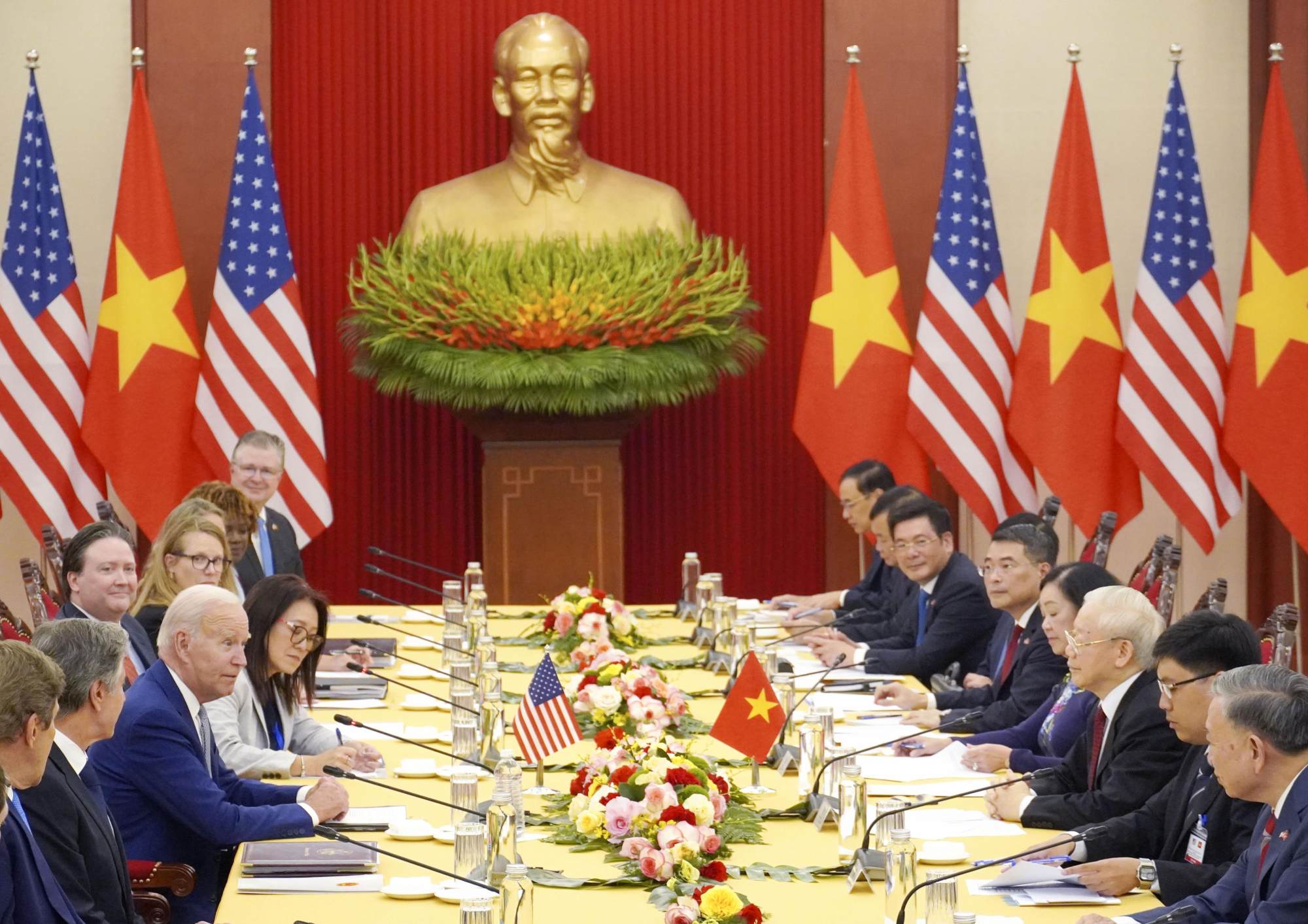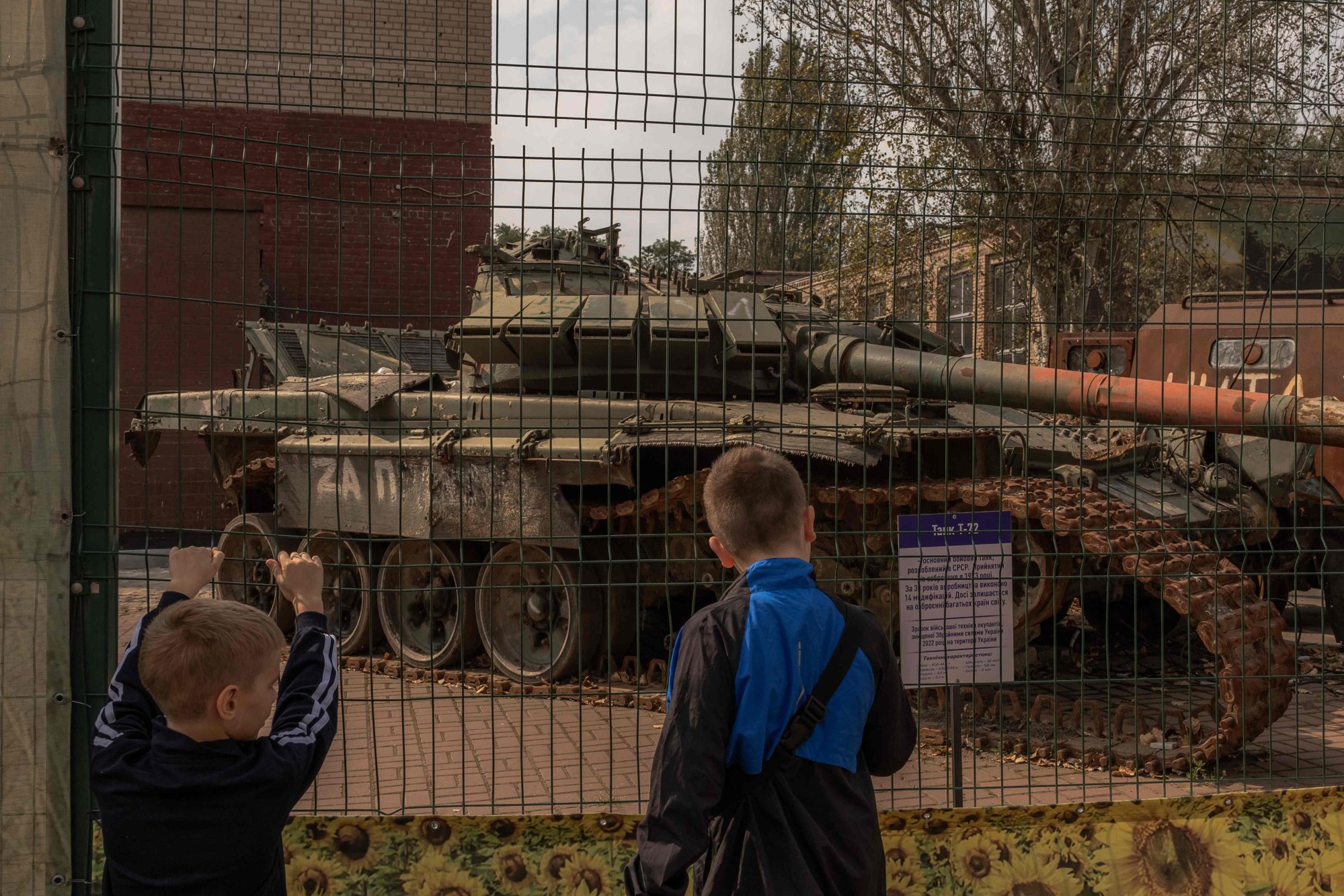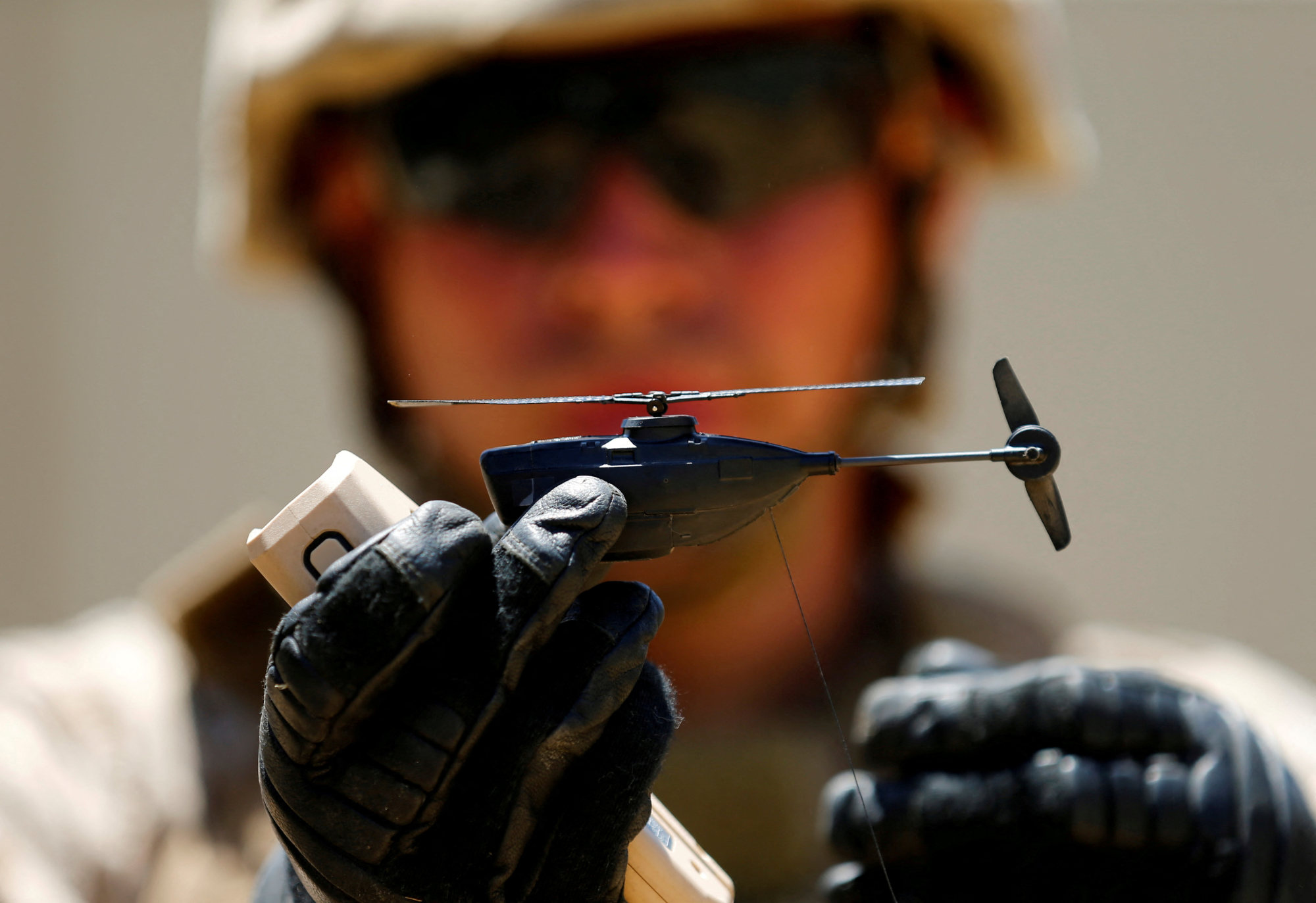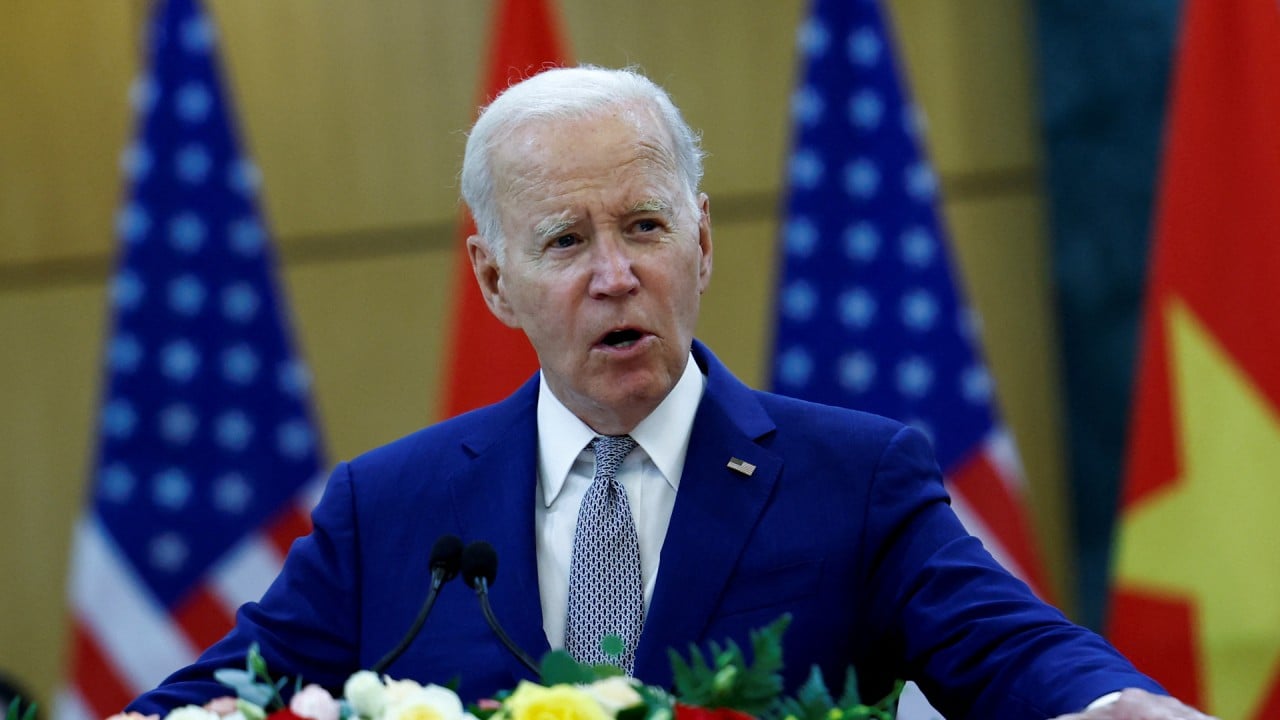
How will Vietnam’s upgraded US partnership affect its China, Russia ties?
- Many believe ‘comprehensive partnership’ will mean enhanced military ties but given Hanoi’s links to Moscow’s weapons, this is flawed thinking
- Hanoi’s communist leaders also would not have agreed to meeting Joe Biden if not confident that Beijing would not punish Vietnam for doing so
An independent policy
Many observers were keen to bill the upgrade in relations as an alignment against China. This is silly.
However, Vietnam’s leaders share a world view far more in line with Beijing than Washington. China may pose a territorial challenge, but maintaining the Communist Party of Vietnam’s (CPV) monopoly of power is in Beijing’s interests.
Vietnamese foreign policy is studiously about not taking sides. Their “four noes and a maybe” (no alliances, no foreign bases, no siding with one country against another, no use or threat of force to resolve differences) is focused on maintaining an independent and omnidirectional foreign policy.
The “maybe” refers to Vietnam – depending on circumstances and conditions – considering the development of defence and military relations with other countries.
Truong Thi Mai, the head of the CPV Secretariat, met Xi in April this year, while Prime Minister Pham Minh Chinh met his counterpart Li Qiang in June. It was the first visit by a Vietnamese prime minister to China in seven years.

Days before 80-year-old Biden’s trip to Vietnam this week, a senior official from China’s International Liaison Department travelled to Hanoi for consultations. Vietnam’s Minister of National Defense was to meet his counterpart, before he went missing. There will no doubt be a high-level Vietnamese trip to Beijing soon.
Trong is a very cautious man. He would not have agreed to the summit with Biden and the upgrading of ties if he were not confident that Beijing would not punish Hanoi for the move. Vietnam has worked assiduously to convince China that it really is independent.
Defence ties with Russia – and the US
Many analysts believe the Hanoi summit will lead to enhanced military ties between the US and Vietnam. This is flawed thinking, as there was no mention of defence relations in the readout, although there was pointed criticism of Chinese aggression in the South China Sea.
The People’s Army of Vietnam (PAVN) is a very conservative organisation, and – like China’s People’s Liberation Army – is a party army, meaning first and foremost it is responsible for the defence of the CPV.
Threats identified in the country’s 2019 defence white paper centred around so-called coloured revolutions – non-violent protests aiming to overthrow the government – and other threats to the regime, such as separatism by ethnic minorities.
It’s true that the PAVN is too reliant on Russian weaponry. But there has been some diversification, with Israel, India and the Czech Republic becoming key beneficiaries.

There is also a lot of potential for arms sales and production agreements with South Korea.
However, no country will supplant Russia for Vietnam’s major weapons systems, in particular ships and fighter jets. Hanoi is comfortable with the price, reliability and familiarity of Moscow’s arms, and already produces munitions for many of its systems.
Moscow also allows for licensed production, which is important to Hanoi, as it wants to enhance its weapons’ manufacturing capacity.
Language is another factor in Russia’s favour. All the electronic systems on Vietnam’s current jets are in Cyrillic, the script used in Russian, which means Vietnamese pilots, top ground staff and mechanics are Russian speakers.

All that said, Russia is not looking like a reliable supplier in the short term at least, as it burns through its own weapons and ammunition stocks in Ukraine. And Vietnam is trying to come up with creative financing mechanisms and avoid US sanctions for its next major upgrade of weaponry, according to The New York Times.
On September 9, the paper said that Hanoi was making “clandestine” plans to buy weapons from Moscow in contravention of sanctions, according to an internal Vietnamese government document in March.
Against this complicated backdrop, the US wants to sell more weapons to Vietnam. And it will, but in niche areas acceptable to Hanoi.
For example, Washington transferred two decommissioned coastguard vessels to Vietnam in 2017 and is providing 12 T6 single-engine aircraft used to train pilots.

In 2019 the US agreed to provide six drones to help improve Vietnam’s maritime domain awareness, part of a US$47.9 million programme that also supplied drones to Malaysia, Indonesia, and the Philippines.
A US company also built a submarine rescue pod for Vietnam’s six submarines, which will be handed over soon.
Furthermore, the US is in talks to sell other weapons to Vietnam, although all are non-kinetic, meaning they don’t shoot bullets or drop bombs.
American firms are unlikely to license their production, though, for fear of intellectual property theft, which will limit defence sales. US weapons are also expensive, and the process of acquiring them is long and complex.

Other military-to-military engagements are likely to continue, but at a level that doesn’t threaten China. There are military medical exchanges, for example, and the US army has engineers working on water control in the Mekong Delta.
Vietnam has avoided multilateral drills, such as the Rim of the Pacific Exercise, the world’s biggest international maritime warfare exercise, as it deems it anti-Chinese.
The US will continue to make port visits to Vietnam, including with aircraft carriers. Defence ties will, overall, continue at the current pace and scope, because that’s what the Vietnamese are comfortable with.

Hanoi still needs Beijing
The centrepiece of the summit was the economic relationship. The US is critically important to Vietnam. It is the country’s largest export market, and Hanoi has a US$44 billion trade surplus with Washington.
It’s a trade surplus that cancels out Hanoi’s deficit of over US$40 billion with Beijing. Much of what Vietnam manufactures – whether electronics, smartphones, semiconductors, cars, textiles, or shoes – are made using materials imported from China.
For all the talk in Vietnam of supply chain diversification and “friend-shoring”, we lose sight of the fact that Hanoi is highly interdependent with Beijing, and is unable to decouple from it.
China is Vietnam’s second largest foreign investor with US$26 billion in 4,000 projects, including US$2.7 billion in 2023 alone.
In Vietnam, ‘flexers’ have US degrees, status, wealth. Others barely sleep
Despite US$22 billion in foreign direct investment (FDI) commitments in 2022, though, Vietnam’s economy is slowing. Their GDP in 2023 is half of the stated target, and exports are slumping. Vietnam is desperate for more FDI and export markets. The US is key to that, and to pulling the country out of the ‘middle-income trap’.
While a new US chip facility was announced at the summit, the US also had to commit to seed money to develop a workforce. Vietnam currently has insufficient human capital to deal with all the investment in the hi-tech sector. Developing that capital will take time and a lot of resources.
Political manoeuvring
Politically, there was a lot going on in Biden’s meetings if you knew what to look for. Nguyen Phu Trong was flanked by Truong Thi Mai, who runs the CPV’s day-to-day operations and To Lam, the Minister of Public Security, the man in charge of maintaining the CPV’s monopoly of power.
While Biden did hold meetings with Vietnam’s President Vo Van Thuong, he is a figurehead who wields little power, despite being one of the “big four” in the country’s collective leadership.

The economic sessions were headed by Prime Minister Pham Minh Chinh, who appears to be out of jeopardy, having been under investigation and having to self-criticise. There had been plenty of chatter that he would be the next leader to fall under Trong’s “blazing furnace” anti-corruption campaign.
Although President Biden had a brief meeting with Vuong Dinh Hue, chairman of the National Assembly – then referred to him as the prime minister in a tweet – it was more symbolic than substantive, and addressed war legacies issues.
This is significant because Hue is the likely candidate to succeed Trong at the 14th Congress, expected in January 2026, and possibly sooner given Trong’s age and health.
Perhaps Trong kept Hue on the sidelines, to prevent his heir apparent from acting presumptuously.
Zachary Abuza is a professor at the National War College in Washington, DC, where he focuses on Southeast Asian politics and security issues. The views are his own and do not reflect those of the National War College or Department of Defence.


